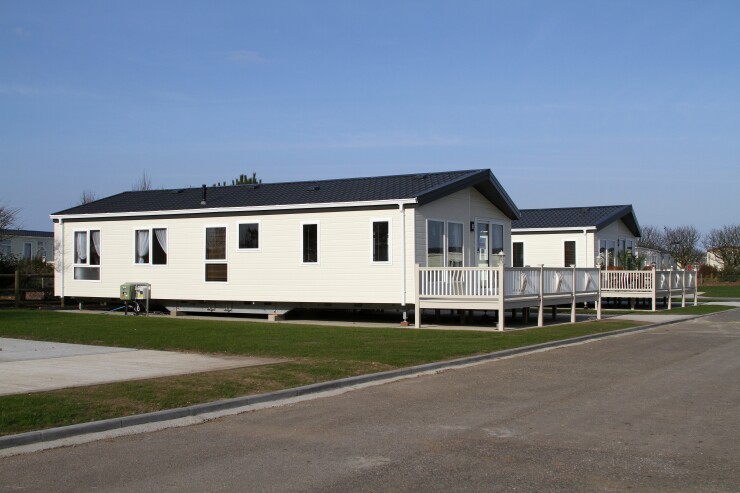Manufactured housing can help solve America's affordable housing crisis. It is a vital resource for many elderly and low-income homeowners. Particularly in rural, low-income areas, it may be the best housing option.
Increasing the emphasis on rural and manufactured housing in the Federal Housing Finance Agency's
As Fannie Mae and Freddie Mac gain confidence with manufactured housing loans, especially those made to individuals who have completed accredited home buyer education courses, distinctions between loans offered to site-built properties and those to manufactured homes should diminish.
As with site-built housing, the GSEs are encouraged to mirror incentives for successful first-time homeownership built into their loan products for MH, such as higher loan-to-value ratios (raising the limit from 95% to 97%) and full 30-year amortizations.
Under Duty to Serve, the GSEs have an opportunity to address a fundamental inequity between conventional real estate and
In states that permit MH to be financed as real estate,

The GSEs are well positioned to address a cross-cutting challenge in the manufactured housing space. A study by Matthew Furman, a NeighborWorks America/Harvard Joint Center on Housing Studies Gramlich Fellow in 2014, indicated there are roughly 500,000 manufactured homes constructed before 1994 (when the HUD code was revisited to include energy standards) that are considered to be dilapidated, inefficient and in need of replacement.
Too often these homes are occupied by residents with very limited means who have very little if anything still owed on the home. Even if a high-quality, Energy Star-rated manufactured replacement home would measurably increase the quality of life as measured by healthy air and water, and would dramatically lower the home's operating costs with annual energy bills as much as 70% lower than in the older home, owners are reluctant to go into debt.
Under Duty to Serve, the GSEs could design and test mortgage products with a lower rate and/or longer term to encourage greater energy efficiency and offset the reluctance of current owners to take on new debt. Any pilot replacement program could leverage the skills and experience of Next Step, a national social enterprise committed to connecting lower income consumers to high-quality MH homes at affordable prices and finance. Next Step requires an energy rating on all their homes of at least the Energy Star standard and is already partnering with Next Step on a pilot in Kentucky.
With the majority of rural residents living in single-family homes, NeighborWorks America recommends the GSEs increase their focus on preserving this stock by providing liquidity for rehab loans, perhaps beginning on a pilot basis. Fannie Mae and Freddie Mac might also consider ways they can partner with USDA to leverage existing rural housing rehabilitation programs like Section 504 grants and loans.
As NeighborWorks America approaches its 40th anniversary, the organization reflects that the work detailed in the Underserved Markets plan is the work we were created to do. NeighborWorks organizations serve all three of the underserved markets covered in the Duty to Serve regulations, and manufactured housing is not only included in the work of NeighborWorks organizations, but NeighborWorks America also supports two manufactured housing social enterprises, Next Step and ROC USA.
NeighborWorks America's recent





